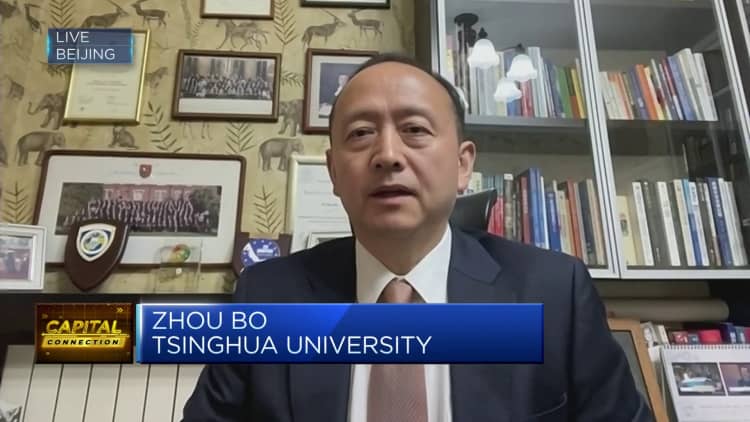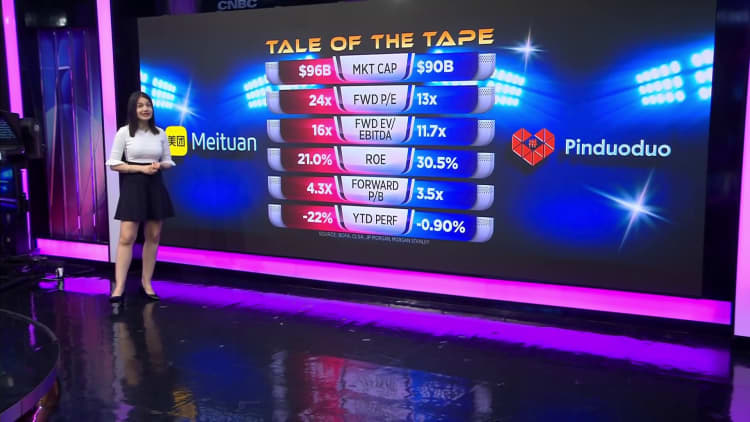Asia-Pacific markets largely fell on Monday, with Japan's markets hovering near 33-year highs.
The Nikkei 225 has posted weekly gains for the last 10 weeks, but slipped 1% on Monday to close at 33,370.42 along with the Topix, which fell 0.43% and ended at 2,290.5.
South Korea's Kospi dropped 0.62% to end at 2,609.5, while the Kosdaq was up marginally to finish at 888.61.
Hong Kong's Hang Seng index fell 0.7% along with the Hang Seng Tech index, which slid 1.45%.
In mainland China, the Shanghai Composite was down 0.54%, finishing the day at 3,255.8 and the Shenzhen Component dropped 0.28%, closing at 11,274.05.
This is ahead of the central bank's loan prime rate decision on Tuesday, after it cut some of its key lending rates last week.
Australia bucked the wider trend in the region. The S&P/ASX 200 was higher by 0.6%, closing at 7,294.9, led by utilities and consumer services stocks.
On the diplomatic front, U.S. Secretary of State Antony Blinken is in Beijing on a diplomatic mission to repair strained ties between the U.S. and China.
U.S. markets will be closed Monday for the Juneteenth holiday. On Friday, all three major indexes ended the day lower after a strong showing earlier in the week. The U.S. Federal Reserve notably held rates after last week's FOMC meeting, breaking a streak of 10 straight increases.
The S&P 500 ticked down 0.37% and the Nasdaq Composite lost 0.68%, but both indexes still recorded their best week since March. The Dow Jones Industrial Average slipped 0.32%, but notched its third positive week in a row.
— CNBC's Brian Evans and Alex Harring contributed to this report





